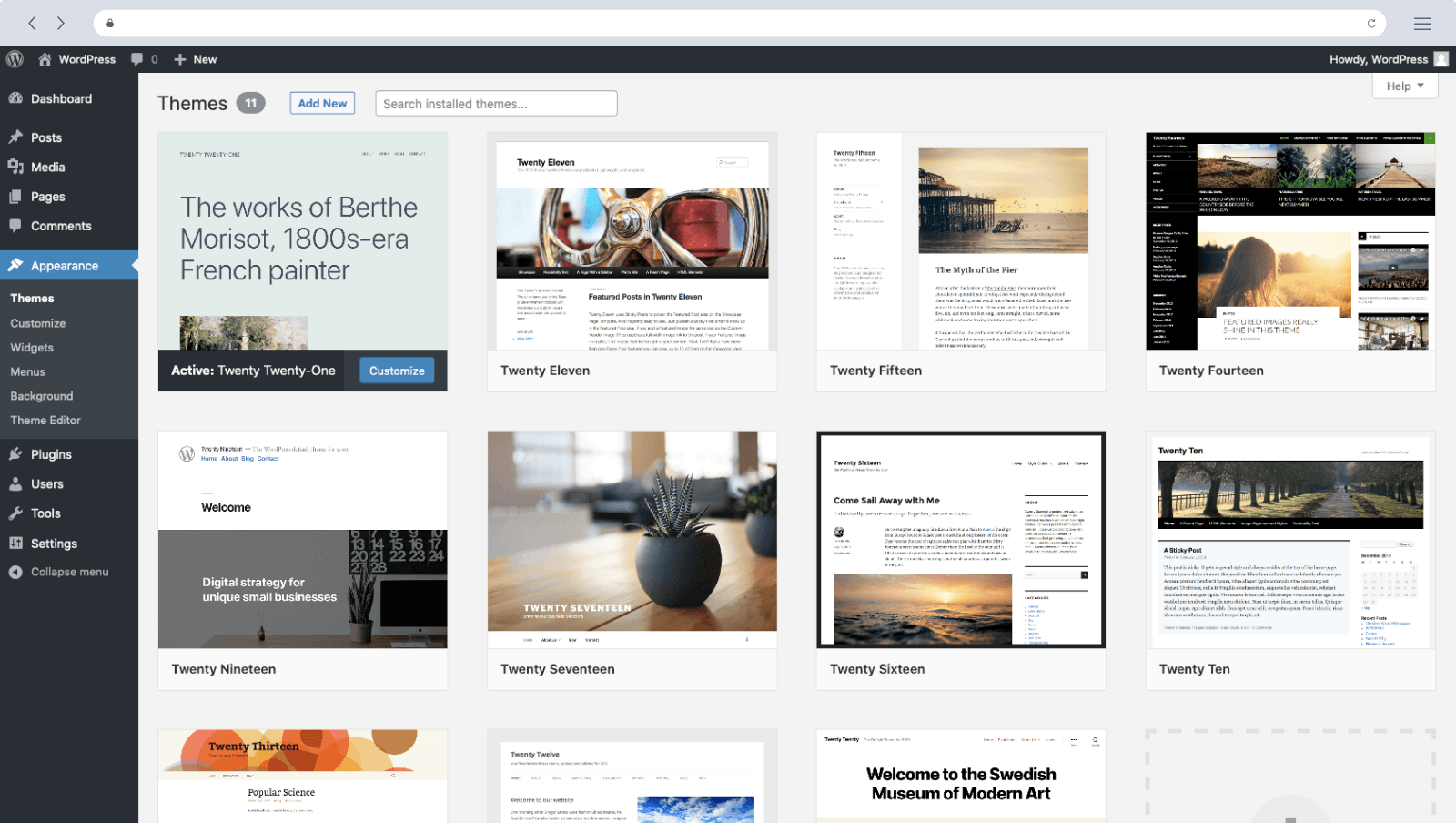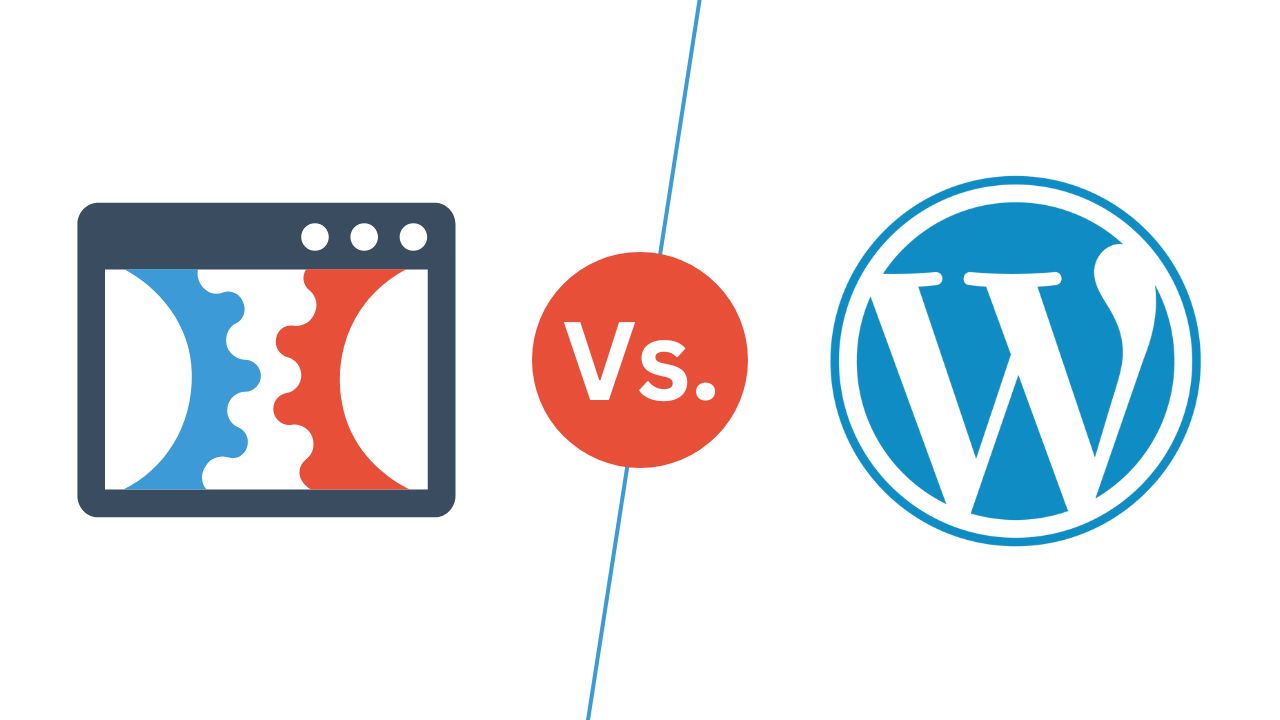ClickFunnels vs WordPress: Which tool is right?
In today’s digital age, a strong online presence is no longer a luxury; it’s a necessity for businesses and entrepreneurs of all stripes. But when it comes to building your website, a crucial question arises: which platform should you choose? Two titans dominate the website building landscape: ClickFunnels vs WordPress. Both offer powerful functionalities, but they cater to distinct needs. This comprehensive guide will equip you to make an informed decision in the battle of ClickFunnels vs WordPress.
ClickFunnels: The Sales Funnel Powerhouse
Imagine a website specifically designed to convert visitors into paying customers. ClickFunnels thrives in this arena. It empowers you to build high-performing sales funnels, a meticulously crafted series of interconnected pages strategically designed to guide visitors towards a desired action, like purchasing a product or subscribing to a service.

ClickFunnels boasts a user-friendly drag-and-drop interface, making it easy to create landing pages, opt-in forms, and order forms without needing extensive coding knowledge. It seamlessly integrates email marketing automation, allowing you to nurture leads and close deals efficiently. Across industries, countless entrepreneurs have leveraged ClickFunnels to launch successful sales funnels, turning website visitors into loyal customers. ClickFunnels’ reporting and analytics features also provide valuable insights into funnel performance, enabling data-driven optimization for even better results.
WordPress: The Versatile Website Builder
On the other hand, WordPress reigns supreme as the world’s most popular content management system (CMS). Unlike ClickFunnels’ laser focus on sales funnels, WordPress offers unparalleled versatility. Whether you dream of a captivating blog to share your industry expertise, a professional portfolio to showcase your creative work, a bustling e-commerce store to sell your products, or even a membership site to deliver exclusive content to paying subscribers, WordPress can bring your vision to life.

Its extensive library of themes and plugins further amplifies its capabilities. Themes provide a plethora of design options to customize the look and feel of your website, allowing you to craft a user experience that aligns perfectly with your brand identity. Meanwhile, plugins add specific functionalities to your website, transforming it into a powerful tool that meets your evolving needs. This flexibility makes WordPress a favorite among those seeking a platform that can adapt and grow alongside their online endeavors.
For content creators, WordPress’s robust blogging features and SEO optimization capabilities make it a perfect fit. Businesses can leverage e-commerce plugins to establish a fully functional online store, complete with shopping carts, secure payment gateways, and inventory management tools.
ClickFunnels vs WordPress: A Head-to-Head Comparison
When it comes to building your online presence, two platforms dominate the battlefield: ClickFunnels and WordPress. Both are powerful tools, but they cater to distinct needs. Here’s a head-to-head comparison to help you choose the champion for your website:
Ease of Use:
- ClickFunnels: Beginner-friendly! ClickFunnels boasts a user-friendly drag-and-drop interface. Even without coding knowledge, you can create landing pages, opt-in forms, and order forms with ease.
- WordPress: Learning Curve Alert! While WordPress offers extensive tutorials, it has a steeper learning curve compared to ClickFunnels.
Customization:
- ClickFunnels: Limited Tweaks. ClickFunnels prioritizes pre-built templates, offering a limited degree of customization for the overall design and functionality of your website.
- WordPress: The Ultimate Makeover! WordPress is a customization king. Its vast library of themes and plugins allows you to tailor every aspect of your website, from the visual aesthetics to the specific features it offers.
Cost:
- ClickFunnels: Monthly Commitment. ClickFunnels requires a monthly subscription fee to access its features.
- WordPress: Budget-Friendly Option. The core WordPress software is free and open-source. However, premium themes and plugins might incur additional costs depending on your needs.
Marketing & Sales:
- ClickFunnels: Built-in Sales Arsenal. ClickFunnels comes equipped with built-in sales funnels and email marketing automation, streamlining the process of converting website visitors into customers.
- WordPress: Plugin Power Up. WordPress requires plugins to add sales funnels and email marketing functionalities. While this offers flexibility, it requires additional setup and potential plugin compatibility considerations.
SEO (Search Engine Optimization):
- ClickFunnels: Limited SEO Strength. ClickFunnels offers limited built-in SEO features, making it harder for your website to rank organically in search engine results.
- WordPress: SEO Champion. WordPress boasts strong SEO capabilities, especially when enhanced with SEO optimization plugins. This can significantly improve your website’s visibility in search engine results pages (SERPs), attracting organic traffic.
Who Should Use ClickFunnels?
- Business Owners Prioritizing Sales Funnels: If your primary objective is converting website visitors into customers, ClickFunnels excels in creating high-converting sales funnels that streamline the customer journey and boost conversions.
- Digital Product Sellers: ClickFunnels is a great fit for selling digital products like online courses, ebooks, or memberships. Its sales funnel functionality allows you to create targeted campaigns that effectively promote your offerings and capture leads.
- Those Seeking a User-Friendly Conversion Machine: Entrepreneurs seeking a user-friendly platform specifically designed for conversions will find ClickFunnels intuitive and effective. The drag-and-drop interface and pre-built templates make it easy to create professional-looking sales funnels even without extensive design or coding experience.
Who Should Use WordPress?
- Those Desiring a Versatile Platform: If you envision a website beyond just sales funnels, WordPress offers the flexibility to create various website types, from blogs and portfolios to e-commerce stores and membership sites. This makes it a great choice for businesses and individuals with diverse online goals.
- Customization Enthusiasts: For those who crave extensive control over design and functionality, WordPress shines. Its vast library of themes and plugins empowers you to tailor every aspect of your website, from the visual aesthetics to the specific features it offers.
- SEO-Focused Businesses: If organic search engine ranking is a priority for your website, WordPress offers a solid foundation. With proper SEO plugin optimization, you can improve your website’s visibility in search engine results pages (SERPs), attracting potential customers through organic traffic.
- Budget-Conscious Individuals: The core WordPress software is free and open-source, making it a budget-friendly option. While premium themes and plugins require additional investment, you have more control over your spending compared to the monthly subscription fees of ClickFunnels.
Conclusion
In conclusion, the battle between ClickFunnels vs WordPress isn’t about a clear winner; it’s about identifying the champion for your specific needs. No matter which platform you choose, a strong foundation is crucial for online success. OnextDigital offers a range of services to empower your website journey, including Web Development Services and UX/UI Design Services, our design specialists will craft an engaging user experience that resonates with your target audience.
Let OnextDigital help you unlock the full potential of your chosen platform. Contact us today for a free consultation and discuss how we can elevate your website and propel your online presence to new heights!






